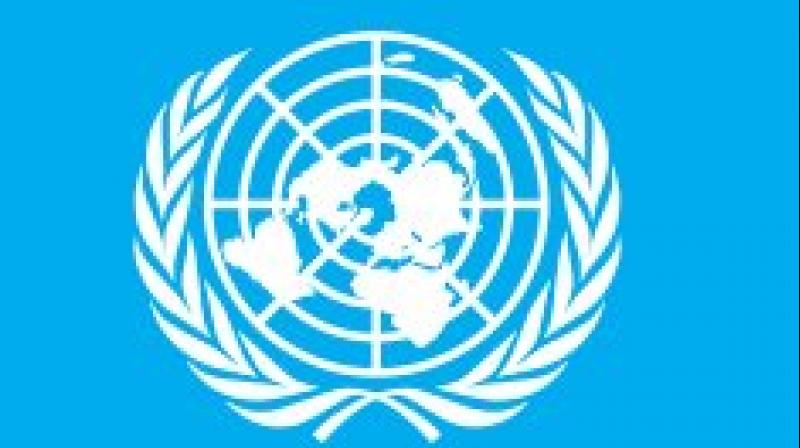China asks for UNSC meeting on Kashmir

New Delhi/New York: In a development that will cause concern to India, the United Nations Security Council may be all set to discuss the latest developments in Jammu and Kashmir probably as early as Friday after China, Pakistan’s all-weather friend, asked for “closed consultations” at the UNSC.
A top UN diplomat said that Beijing made the move after Islamabad wrote a letter to the UN asking for a meeting.
The diplomat said a request for a meeting was submitted very recently, and could take place as early as Friday. China is one of the five permanent members of the UNSC (P-5). New Delhi is learnt to be watching the situation closely.
Observers say China seems under tremendous pressure from Pakistan to act on its behalf. The Chinese seem to have obliged Pakistan somewhat, despite the fact that external affairs minister S. Jaishankar had visited China recently and held talks with the Chinese leadership.
“China asked for closed consultations on the Security Council agenda item ‘India Pakistan Question’. The request was in reference to the Pakistani letter to the Security Council president,” the UN diplomat was quoted as saying. The diplomat added that Poland, the current president of the council, has to consult and take into account preferences of the other Council members before deciding on the time and date for the meeting.
The official said so far no final decision on the time had been made and Friday morning was the “earliest realistic option” for the meeting.
However, Pakistani TV channel Geo News had quoted UNSC president Joanna Wronecka as saying “the UNSC will discuss the Jammu and Kashmir situation behind closed doors, most likely on August 16”.
Asked about the timing, Ms Wronecka said: “Most probably on Friday as the Security Council would not operate on Thursday”, according to the report.
India has already told the international community that the move to revoke Article 370 of the Constitution and bifurcate J&K was an “internal matter” of India falling under its “sovereign jurisdiction”.
Pakistan had said earlier it would approach the UNSC against India’s move. Reports from Islamabad said Mr Qureshi had sent a formal letter to Ms Wronecka through the country’s permanent representative Maleha Lodhi to convene the meeting. Mr Qureshi earlier visited Beijing to convince the Chinese leadership to support Islamabad at the UNSC.
On his recent visit to Beijing, Mr Jaishankar had termed the Chinese concerns on the formation of Ladakh as a separate Union territory as “misplaced”, saying New Delhi “was not raising any additional territorial claims” and that “there was no implication for either the external boundaries of India or the Line of Actual Control (LAC) with China”. This, in essence, meant that India continued to only claim territory that it has always claimed and regarded as its integral part like Aksai Chin, and that the area of the two new Union territories was the same as that of the combined J&K state, which was bifurcated.
Mr Jaishankar had also clearly told China that it “should base its assessment on realities” insofar as India-Pakistan ties were concerned, a clear message that China should not side with Pakistan.

